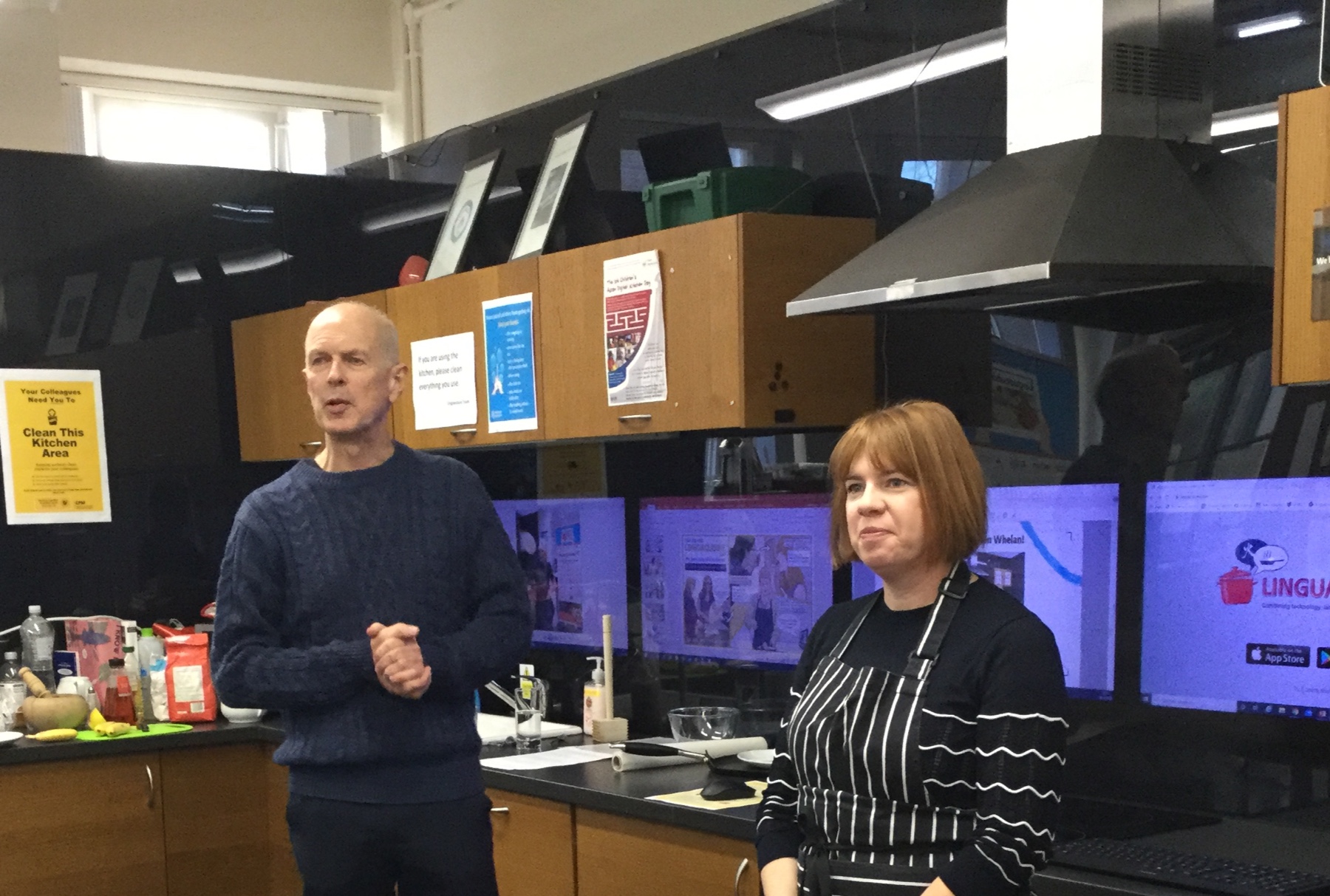ilab:learn
ilab: learn is a laboratory for developing educational applications of digital technology.
Contributing and shaping our research
ilab:learn has been part of the School for over a decade. It contributes to and shapes our research. ilabs are the Digital Institute’s vehicle for supporting and promoting the research, development and application of digital technologies within the University’s research.
Digital equipment is located in the lab for active, creative use by staff and postgraduate research students. Technologies include:
- multi-touch and pen-based tabletops
- a Self-Organised Learning Environment (SOLE)
- mobile learning devices
- digital kitchens and apps for task-based language learning
- Video Enhanced Observation app
Collaborative work
The aims of ilab:learn are to combine our expertise in pedagogy with the School of Computing's expertise in:
- web-based technologies
- pervasive computing
- situated interaction
Technological learning
We aim to develop a program of technology-enhanced learning research that exploits:
- social computing
- pervasive computing
- situated interaction technologies and applications
- mobile and tablet apps
We're keen to use theory and practice to motivate, develop and test technology-enhanced learning. We want to tackle world-class research in applied linguistics, education and computer science.
Linguacuisine app
Watch a video from the HundrED Innovation Summit of Paul Seedhouse and Alison Whelan explain and demonstrate the Linguacuisine app in our digital kitchen. Watch the ilab:learn film.
.jpg)
Projects and grants
Digital Kitchens for Language Learning - French Digital Kitchen. £156k EPSRC grant. PIs Paul Seedhouse and Patrick Olivier. The project won the EU European Language Label prize 2012.
Digital Kitchens for Language Learning - Lancook. PIs Paul Seedhouse and Patrick Olivier. Grant of €400k received from the EU Lifelong Learning Programme
Digital Kitchens for Language Learning - Linguacuisine. Grant of €324k from the European Union Erasmus Plus Programme. PI Paul Seedhouse. Co-I Ahmed Kharrufa. Research Software Engineer Phil Heslop.
EuroSOLE. Grant of €391k from the European Union Erasmus Plus Programme. PI Helen Burns. A project to develop new forms of self-organised learning that empower young people. It supports schools with tackling early school leaving. RA Liz Hidson.
PROPIC Europa an Erasmus+ project (€77k) which aims to empower prospective teachers and teacher educators to actively engage in lifelong learning processes. It helps to cooperatively establish a culture of self-reflection, innovation and interculturality in foreign and second language learning and teaching. UK Co-I Paul Seedhouse; RA Alison Whelan.
VEO Group Video Enhanced Observation pulls together the power of video and data for effective professional learning. Directors; Paul Miller and Jon Haines.
VEO Europa is an Erasmus+ funded project (€268k) which aimed to improve the quality of teaching and learning through using an innovative technological approach developed at Newcastle University. The VEO App supports initial teacher training and continuing professional development. PI Paul Seedhouse; RA Liz Hidson.
Communities, Languages and Activities App (ENACT), a €270k Erasmus Plus grant 2019-2021 (Satar and Seedhouse). ENACT will develop a responsive web app offering a real-world immersive learning experience with a task-based digital learning pedagogy.
Publications on ilab:learn projects
Digital Tabletop for Task-Based Language Learning
Digital Kitchens for Language Learning and book
VEO Europa and ibook
